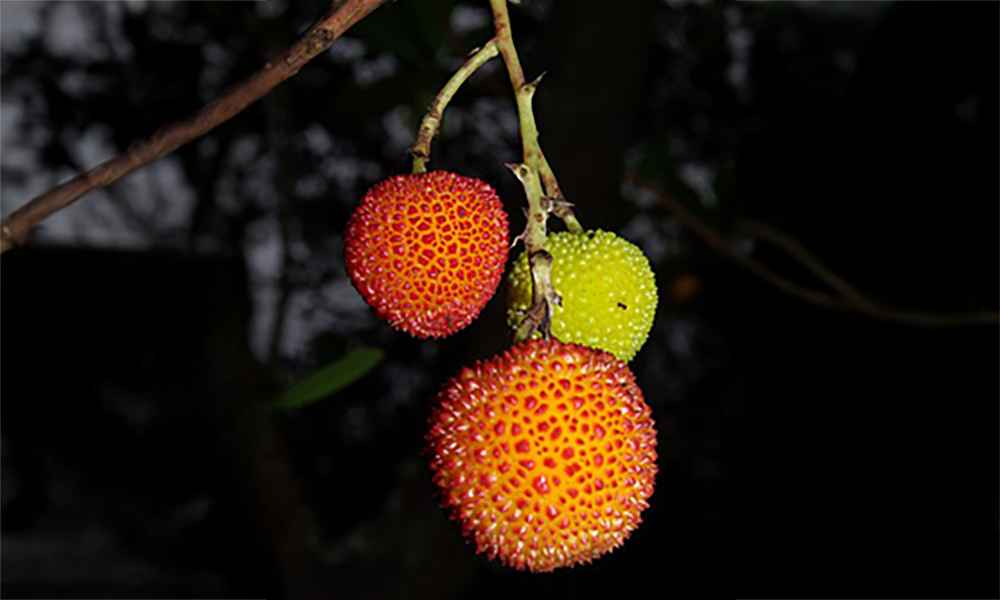Medronho is a traditional Portuguese spirit made from the fruit of the medronheiro (Arbutus unedo), commonly known as the strawberry tree. This spirit is primarily produced in the rural regions of southern Portugal, especially in the Algarve and the Monchique mountains. The craft of making Medronho is an age-old tradition, passed down through generations.
The main ingredient in Medronho is the small, red, and sweet fruit of the strawberry tree that are harvested, fermented, and then distilled to create the spirit. The production process begins with natural fermentation, where the fruits are left to ferment for several weeks, followed by distillation often carried out in small family-owned distilleries and using traditional copper stills. The result is a potent, clear spirit with a robust and earthy flavour and fruity undertones. Known for its strong and fiery taste, it is often described as rustic and raw. The alcohol content is typically high, usually around 40-50%.
Deeply rooted in Portuguese rural culture and traditions, Medronho is associated with the agricultural lifestyle and is essential at social gatherings and celebrations. It is also believed to have medicinal properties and is sometimes taken as a remedy for various illnesses. Traditionally, Medronho is consumed neat, usually in small glasses due to its high alcohol content and it is often enjoyed as a digestive or aperitif.
Medronho is cherished for its unique, robust flavour and its cultural significance in Portugal, particularly in the southern regions where it has been a part of local traditions for centuries.
Jeropiga is a traditional Portuguese alcoholic drink, closely linked to the country’s rich wine culture. Made from a mixture of grape must (unfermented juice) with aguardente, jeropiga has an alcohol content that varies between 15% and 22%, resulting in a sweet and aromatic drink. The production process involves adding aguardente to fresh must, which interrupts the fermentation of the grapes’ natural sugars, preserving their intense fruity flavours.
This drink is consumed especially in wine regions such as Alentejo, Douro and Beiras, where different grape varieties give unique flavours to the jeropiga. Production often follows traditional methods, passed down from generation to generation, giving jeropiga an authentic, regional character.
Generally served in small glasses, jeropiga is enjoyed as an aperitif or digestive and can be accompanied by desserts, cheeses or other dishes that complement its sweet flavours. It is commonly associated with festivities and celebrations, being present at many popular festivals and regional Portuguese events.The intense aroma and fruity flavour of jeropiga make it a unique drink, evoking the heritage and tradition of Portuguese winemaking, where history and tradition come together in perfect harmony.



